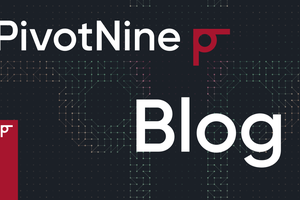DevOps Automation Platform Zeet Raises $4.3 Million
Zeet, which bills itself as an “integrated DevOps and deployment platform for software developers” has raised $4.3 million in a seed round lead by Sequoia Capital.
Existing investor Race Capital also participated, as did various engineering leaders from AWS, Google, Twitch, Repl.it, Yelp, Sentry, according to the company.
“We're a platform that makes it easier for developers to deploy into their cloud, or clouds. Kind of a next-level abstraction on top of AWS and Google Cloud,” says Johnny Dallas, co-founder and CEO of Zeet.

Dallas and his co-founder, Zihao Zhang, built Zeet after trying to deploy a new project, only to become frustrated with existing tools that didn't do what they needed.
“Even though we were extremely experienced in structure engineers at this point, we couldn't use any of the existing tools,” Dallas said. “The idea of setting up AWS from scratch at 11:30 at night, with any level of operational quality, was so daunting that we didn't ship the project that day.”
Bringing order to chaos
Zeet isn't designed to replace clouds, but to make them easier to use. Zeet isn't trying to build its own cloud over the top of existing infrastructure. The focus is on helping application developers use existing cloud environments more easily so they don't have to also become infrastructure engineers.
“There's just too many of these services, and they're built in this very fragmented way where relatively little thought is given to the coherence of the overall experience,” said Bogomil Balkansky, partner at Sequoia Capital.
“One way to solve the problem is to provide a layer of abstraction,” he says, “But there's always this tension between simplicity and flexibility. A lot of offerings tend to optimize around one or the other, but focusing on just one is not enough. At the end of the day, you need both, and we believe Zeet accomplishes that.”
Part of how Zeet accomplishes this trade-off is by providing an ‘escape hatch'. If customers want to do something that Zeet doesn't support, or is cloud specific, they can pull the escape hatch and use the cloud directly. It also means they can see what's going on underneath Zeet if they need to.
Opinionated abstraction layers with ‘sensible defaults' work fine up until customers need something that doesn't fit neatly within the confines of the abstraction layer's assumptions. It's very frustrating to be tantalizingly close to solving a problem, only to be thwarted at the last moment by your own tools.
Plays well with others
“The role of the modern DevOps engineer is less inventing new systems and more mapping different tools together,” says Dallas. “What we do is try to take some of that off your plate.”
Zeet's philosophy is augmentation, not replacement. If you've already invested in systems like Pulumi, or Terraform, or other DevOps tools, Zeet will complement them. Customers don't need to immediately move everything under Zeet's control, but can use it where it makes sense. As Zeet expands its support for different clouds and features, customers can decide if they want to use Zeet to control them, or choose a different path.
Zeet is Software-as-a-Service (SaaS) and priced per-seat, with tiered pricing to suit different sized teams. There's a free tier to encourage developers to try it out. So far
Zeet says around 50,000 developers have used Zeet to deploy applications into around 2,000 cloud accounts. This seed round is ear-marked for growing the team, with Zeet looking to fill engineering, design, and product roles.
This article was originally published at Forbes.com.
